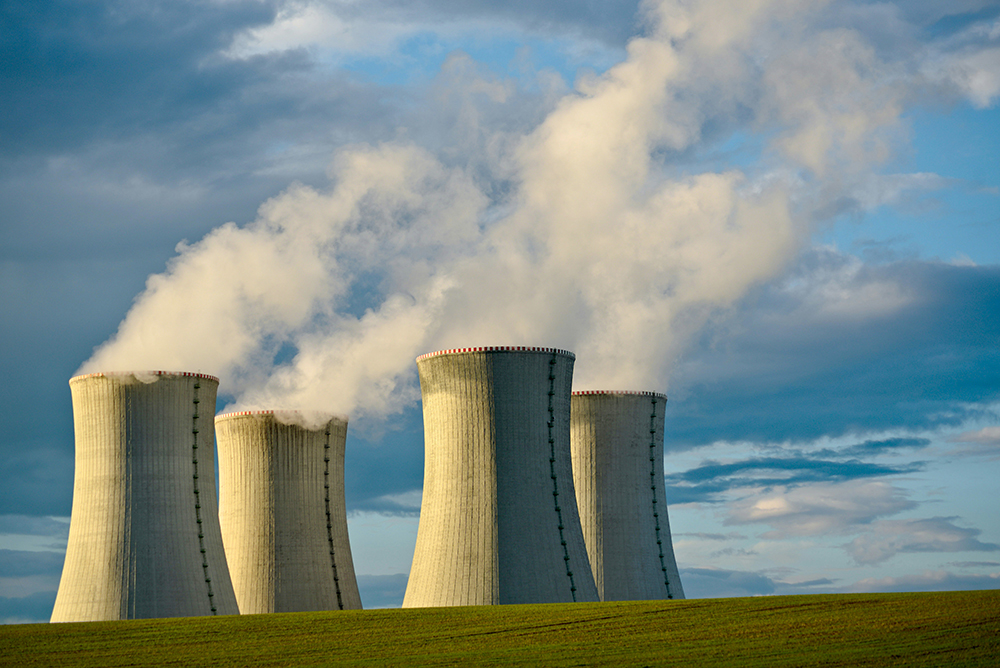As electricity demand continues to rise and supply struggles to keep pace, the New Jersey Board of Public Utilities (NJBPU) issued a Request for Information (RFI) “to explore the role and opportunity to develop new nuclear energy resources to advance the State’s affordability, resource adequacy, and clean energy goals,” according to a May 6 press release.
The May 5 RFI, which is a significant step toward potentially expanding nuclear power generation in the state, invites stakeholders and the public to weigh in on the role it could play in delivering affordable, reliable and clean electricity.
This move comes as part of the ongoing update to New Jersey’s Energy Master Plan in response to an increasingly strained electricity grid, with supply rates set to rise up to 20% on June 1. The NJBPU emphasized that the request aims to bolster the role of nuclear energy in advancing affordability and reliability needs.
Currently, the state operates three nuclear power reactors — Salem 1 and 2, and Hope Creek — all located in Salem County. These facilities produce 40% of the state’s electricity and account for 85% of its carbon-free generation. The three nuclear generation units, like most in the country, are known as third-generation (GEN III) nuclear reactors, according to the NJBPU’s May 6 press release.
The NJBPU and the Governor’s Office have emphasized the critical need for “clean firm capacity” beyond 2035 to maintain system reliability.
“New Jersey is committed to addressing the regional cost crisis. As part of my Administration’s all-of-the-above energy strategy, we continue to explore ways to bring online new sources of electricity generation and improve and expand our nuclear fleet to grow the supply of resources as the U.S. faces increasing demand. At the same time, we’re pushing PJM Interconnection to bring new resources online faster and reduce prices,” said Governor Phil Murphy, according to the press release.
The RFI calls for input on how new nuclear technologies, including advanced reactors and small modular reactors (SMRs), could contribute to reducing emissions, meeting growing demand from industries like AI-powered data centers and addressing environmental challenges.
The NJBPU is also seeking advice on whether the state should offer financial incentives for new nuclear projects and how to protect ratepayers if it does.
New Jersey’s renewed focus on nuclear energy comes amid a broader regional trend. The PJM Interconnection, which manages the electricity grid across 13 states including New Jersey, has forecasted a nearly 40% increase in electricity demand over the next 14 years, according to the press release. This surge is driven in large part by new manufacturing and data-driven industries.
Despite its promise, nuclear energy remains a polarizing issue, especially after decades of public skepticism, intensified by past accidents like Three Mile Island, Chernobyl and Fukushima.
Environmental groups have long opposed nuclear expansion due to concerns about groundwater contamination and waste disposal. Their advocacy helped lead to the 2018 closure of the Oyster Creek plant in Lacey Township.
The draft 2024 Energy Master Plan, released in March 2025, states that nuclear power is essential for reducing dependence on fossil fuels and imported energy. The issue is expected to feature prominently in New Jersey’s June primaries and the November general election, as electricity rates and energy reliability remain top concerns for voters.
In addition to the NJBPU’s RFI, a bill advancing in the state Assembly would mandate a study into the role of small nuclear reactors in expanding power generation.
The NJBPU set its deadline for written responses to its request as 5 p.m. on June 23.
Julia is a recent Rider University graduate, where she studied multiplatform journalism and social media strategies. In her spare time, she enjoys reading, trying new coffee shops, photography and the beach. She can be reached at juliatrainmedia@gmail.com or connect with her on Instagram @juliatrain


















